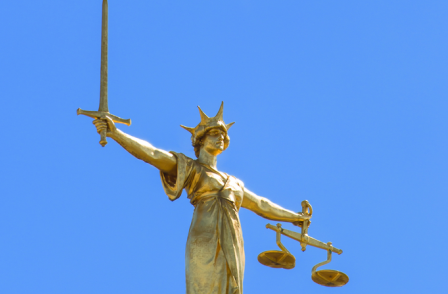
Legal curbs are needed to stop journalists talking to witnesses and to prevent those under investigation by police being named in the media before arrest, a report stated yesterday.
The report by retired High Court judge Sir Richard Henriques follows the collapse in March of the Met’s £2.5m Operation Midland into historic allegations of child abuse with no-one being charged. Officers from Midland searched the homes of Lords Brittan and Brammal and former MP Harvey Procter.
Although none of the men were ever charged, their names were reported by the media and they lived for many months under suspicion.
Henriques warned that publicity around the arrest of a “prominent person” can lead to “false complaints” coming forward.
He said: “It is wrong to turn a blind eye to the possibility that a complaint may have been motivated by financial consideration.” And he warned the payment of money by the media to complainants “can prove fatal to a successful outcome”.
To help prevent the names of those questioned by police entering the public domain, he suggested that: “In cases involving prominent people, consideration should be given to inviting complainants to sign confidentiality agreements and witnesses to sign witness contracts.”
Although he admitted that such agreements would not be enforceable.
The report looked at eight historic child abuse cases, covering operations Yewtree, Midland and Vincente.
Henriques said that in all of the cases he looked at the names of suspects were reported by the media at “a very early stage of the investigation”.
This followed Met Police policy to provide the age and rough home location of those arrested when faced with questions from the media.
Henriques said: “In the case of Yewtree or Midland the provision of a suspect’s age and location of a home address is all but certain to result in a loss of anonymity. Further, in a reactive situation where the press put forward the identity of a suspect and the DMC [Directorate of Media and Communications] respond with the age of the person arrested, it is all but inevitable that anonymity will be lost.”
When Lord Bramall and Harvey Procter were both named by the media the Met confirmed that a man in his 90s from Farnham was arrested under caution and a man in his 60s from Grantham was interviewed under caution.
The Enriques report states that Met Police policy “should be amended to avoid any details of age or geography being released to the public in relation to an arrest, search, interview, or bail of any suspect”.
And he further added that: “A suspect should have the right to anonymity prior to arrest enforced by statute and criminal sanctions.”
He also said: “Every effort should be made to minimise leaks of information by examining current systems and increasing sanctions.”
The report states that during Operation Midland, the main witness in the investigation – known as ‘Nick’ – was shown photographs by journalists, had names supplied to him and was shown buildings which could have been significant. The news organisation involved was now defunct website Exaro.
UPDATE: Former Exaro editor Mark Watts said on Twitter: “Exaro’s picture test with ‘Nick’ of pos suspects and non-suspects was BEFORE Met’s inv, Operation Midland, began in Oct 2014.”
Henriques said: “Had a prosecution resulted from the investigation, very considerable difficulty would have resulted in identification procedures sufficient to render convictions impossible. What is needed is some form of statutory control once a matter is under police investigation.”
He also said that several of the complainants he interviewed were concerned that they were approached by members of the press.
“It may be that some form of statutory control is needed to prevent investigative journalists intruding into investigations in circumstances such as these.
“In an endeavour to encourage witnesses to come forward and to give evidence in high profile cases some statutory control may be necessary to prevent doorstepping of witnesses.”
Referring to Operation Hydrant, the over-arching police investigation into historic child abuse, Henriques said the “vast majority” of 400 complaints made were without merit.
Referring to the case of Harvey Procter, who was accused of murdering three children, he said: “He is in my judgment an innocent man as are all the men named by ‘Nick’. Several other men whose cases I have reviewed are also innocent of allegations made against them.”
He said it was wrong that reputations were “shattered by the word of a single uncorroborated complainant”.
Only 85 pages of the 500-page report by Henriques were published by the Met Police, leading to complaints of a cover-up and allegations that yesterday (the day of the US election result) was a good day to bury bad news.
Metropolitan Police Commissioner, Sir Bernard Hogan-Howe, said: “This is an important contribution on a subject of significant public interest, and the police service and criminal justice system should give his recommendations detailed consideration.”
Email pged@pressgazette.co.uk to point out mistakes, provide story tips or send in a letter for publication on our "Letters Page" blog
